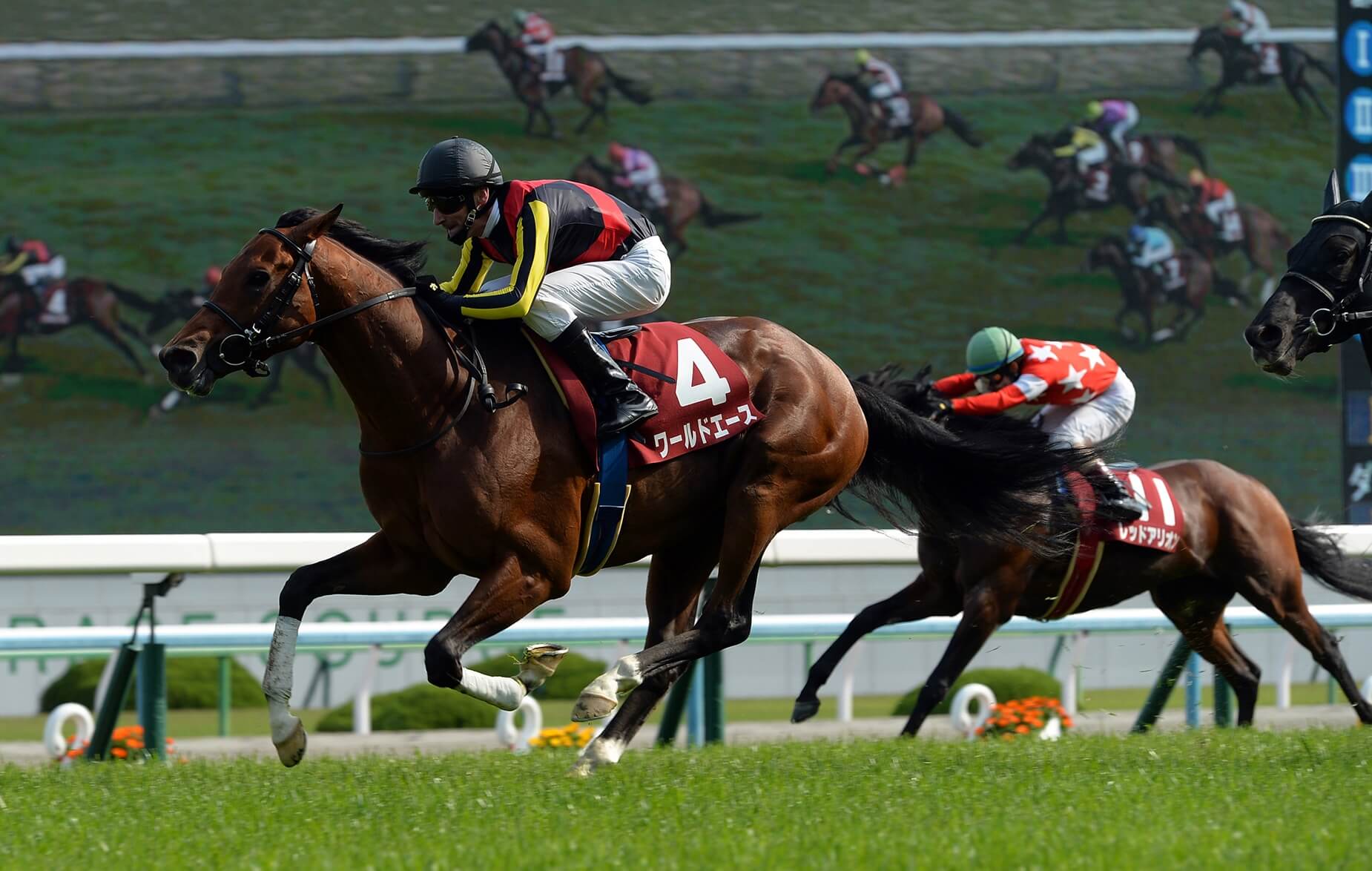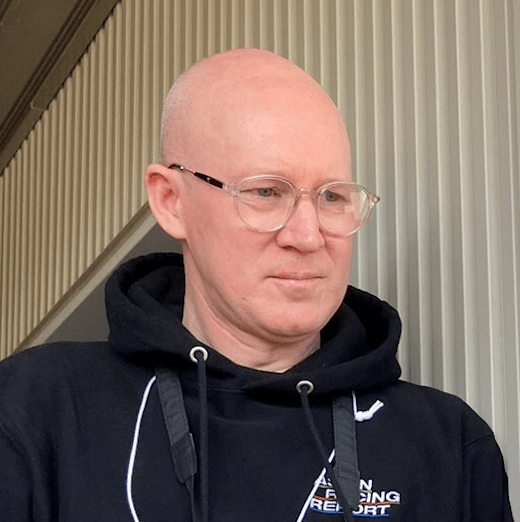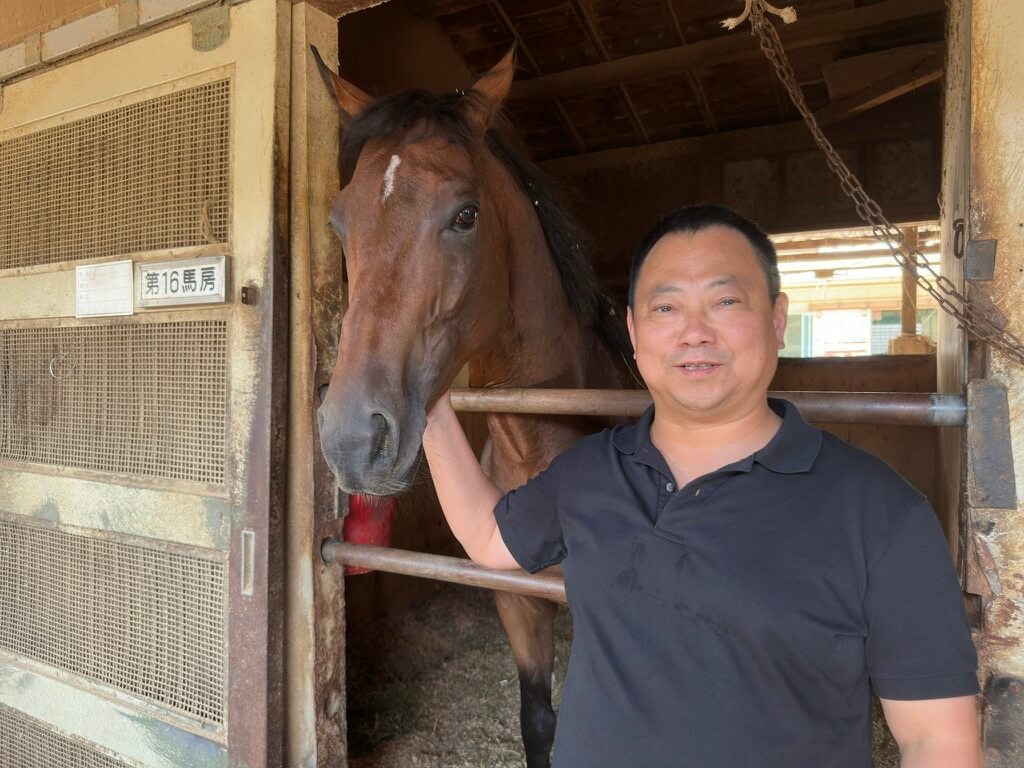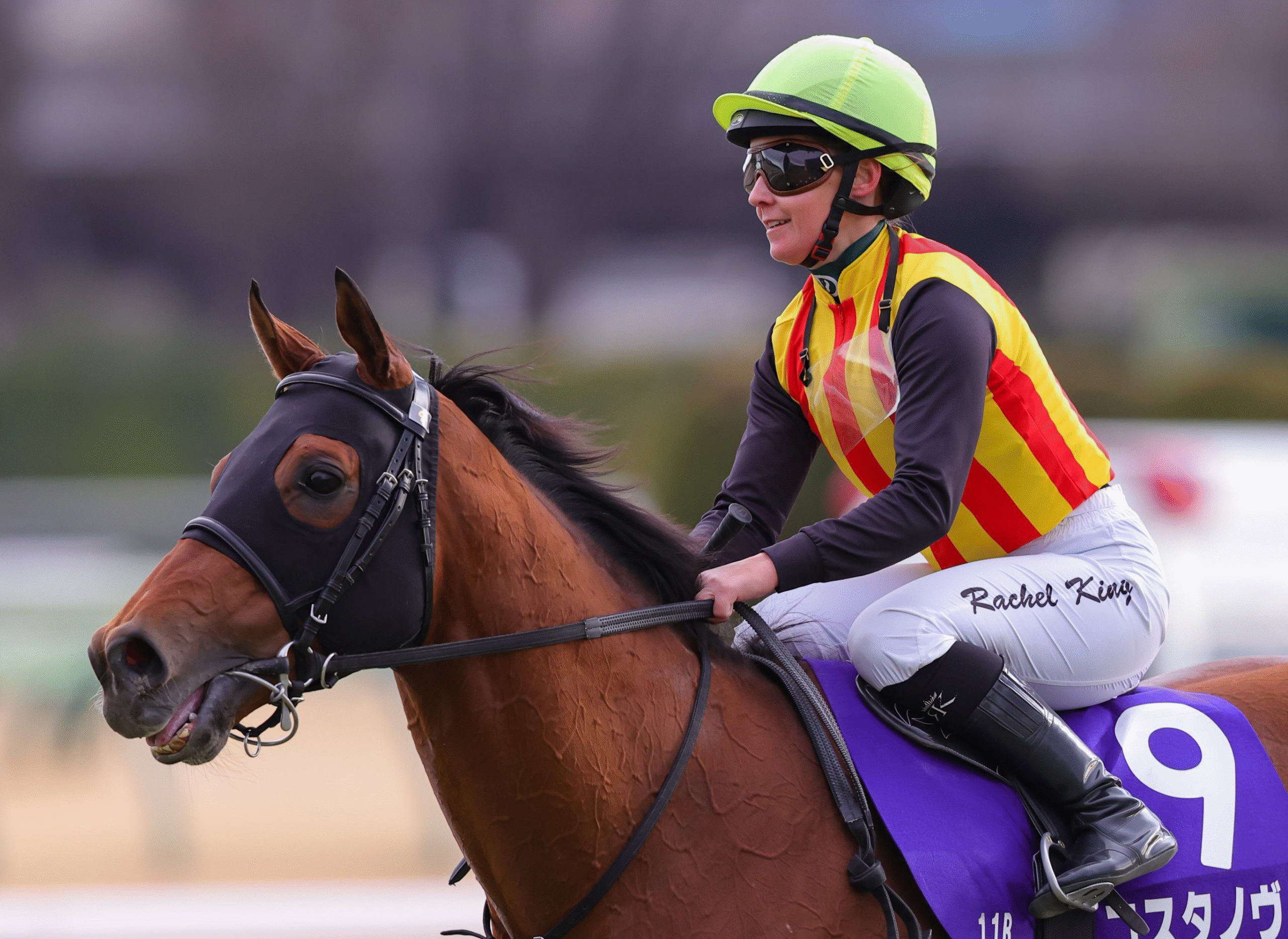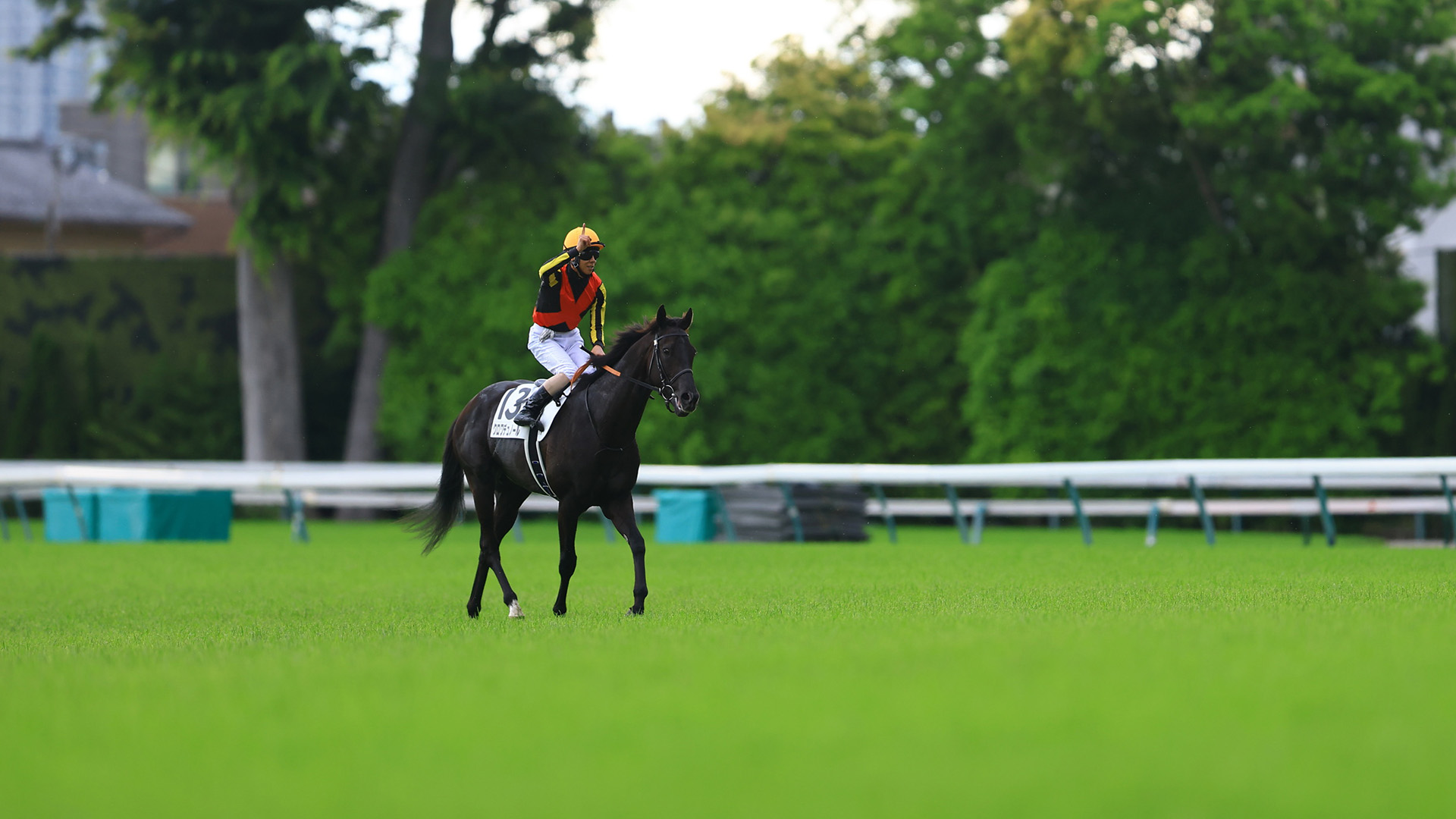Japanese Racing Is All Still Amazing To Andrasch Starke
The multiple German champion Andrasch Starke is relishing his return to the JRA circuit and says the Japanese industry’s measured, long-range planning is producing ‘amazing’ results.
IT HAS BEEN more than four years since Andrasch Starke last rode in Japan, but with a 10th German champion jockey title tucked under his belt in the last year, he is back on a seven-week licence and eager to be in the JRA (Japan Racing Association) mix once again.
Chukyo and Nakayama are his first assignments: five rides booked at the former and one at the latter as he aims to add to the 87 JRA wins he has collected down the years. His latest win, on Valcos, rounded off a double at Hanshin on March 14, 2020.
“In the past I have usually had three months here, but this time it’s seven weeks and that’s why I came early, because in November a lot of class jockeys will come for the Japan Cup. But that doesn’t matter, I’m very happy to get the licence and it gives me the opportunity to come next year for three months,” he told Idol Horse, speaking after a gym workout at Ritto where he will be based.
Starke’s connection with Japan goes back to 1997, in the now-distant days when European horses made winning the Japan Cup a regular occurrence. He and Andreas Schutz’s globe-trotting Caitano turned up at Tokyo for the big international feature that November and ran home fourth behind the British star, Pilsudski.
“I wouldn’t say I’d have beaten Pilsudski, but I had a bad stop just in the straight and it cost me a little bit,” he recalled of that first experience at Tokyo.

Starke returned in 2001 for the G1 Champions Cup, then in 2007 and 2008 he competed in the international jockeys’ challenge; in 2011 he was back again, riding the great mare Danedream in the Japan Cup; in 2012 it was the jockeys’ series again that took him to Japan and in 2013 he was given his first short-term licence. He returned every year bar 2018, until the Covid-19 pandemic shut down much of the world just as his spring 2020 stint was ending.
As a regular visitor, he has seen at close quarters the advancement of racing in Japan across more than a quarter of a century, the success of which he believes is all in ‘the plan.’
“It’s not only about the horse racing, it’s the breeding as well, and it’s the facilities and the very high level of professionalism,” he said. “They started with learning all over the world, they went around places, and the results you see in the quality of the horses, but they also have the horsemanship. They’ve watched and learned from the best and mixed it altogether.
“Even if you buy the best mares and stallions all over the world, if you don’t have a plan it all blows away. But they’ve had a plan going back a long time, and the results in the last 25 years are outstanding.
“It was always professional in Japan, the way they run things here. When I first came, the quality was very fair and the quality of the horses was good, but I think they have increased a lot in the last 20 or 25 years.”

Starke has been particularly taken with the improved standards among the broader cohort of jockeys in Japan in recent times.
“The jockeyship has improved a lot,” he said. “They’ve had good young talents coming through in the last 10 to 15 years. When I came the first time it was always Yutaka Take, Yuichi Fukunaga, Yukio Okabe; I mean, Yutaka is a world class rider, Kawada is a very good rider, but this young guy Ryusei Sakai, we’ve seen he’s a very good jockey when he rode in England and Ireland, and he won in Dubai.
“There are some young, very talented jockeys coming through and in my opinion they mix the styles, a little bit of European and American; you can see they have a little bit of everything, like Ryan Moore, like Christophe Soumillon, like Frankie Dettori, so you can see very stylish, strong, good riders with big talent and a lot of patience and confidence.”
At 50, Starke’s career is at the other end of its duration from a rider like Sakai, who at 27 should still have many big days ahead of him.
Starke was born and raised in Hamburg and though he had a familial connection to horse racing, he knew nothing of it in his early years. His father, Christian, had been a jump jockey in Germany before going to the United States where he was a work rider for eight years at tracks including Aqueduct, Saratoga, and Santa Anita.
“My father returned to Germany and stopped with horse racing: he worked in a clothing business, a factory making jumpers and things. I was born and there were no pictures of horses (at home), no prizes or anything, nothing that you would say ‘Oh, what’s this daddy?’ there was nothing. He would never talk about horses,” Starke recalled.
“I always wanted to have a pony and he’d say no, you can ride a pony but I won’t buy you one. So, one day we went to Hamburg for the German Derby meeting and from that day I wanted to be on a horse every day.
“Hamburg is only a racetrack, there are no trainers there and no training centre, so he drove me every weekend, when I was 10 or 11, to Hanover and later to Cologne, and he made the connection with Bruno Schutz, so he supported me a lot.”

Starke was apprenticed to Schutz. His first win came in June, 1989, and in September 1995 he had his first notable win abroad when Sternkoenig took the Premio Federico Tesio in Milan. He has had many more since.
As well as eight German Derby wins and six in the German Oaks, he has won and competed in major races across the globe, and in 2004 won the sadly-defunct Singapore International Cup with Epalo. His most famous victories, though, came in the King George VI and Queen Elizabeth Stakes and the Prix de l’Arc de Triomphe with Germany’s finest mare, the late Danedream, who succumbed to laminitis last year at Shadai Farm.
“On her day, she was the best horse I rode,” he said. “It was special.”
Starke hopes to win another German Derby before his career comes to an end. He does not know when that end will be, but is conscious that, having hit the half-century mark, he probably has only “two, three, four years,” perhaps before he calls time.
“It can come quickly,” he said, but noted that Dettori is “rocking America” at 53 and Adrie de Vries is still riding Group 1 winners at 55.
“It comes to the support and when that goes, it’s time to say it’s over and that will be fair because I’m in my 50s and there are young jockeys out there.
“I really love horse racing but I also love fast horses, everybody does, and that’s what I’ve always been used to the last 36 years. I don’t have to be champion jockey or riding all the big races, but I want to have fun. If I don’t get that feeling any more, and don’t get the horses that show me something, then it comes when it comes. But I’m not retired yet!”


Indeed, he is not. Starke is relishing being back in Japan and is focussed on achieving the best results he can. And he is aiming to enjoy the experience of perhaps the most vibrant horse racing fan culture in the world.
“The people here are so involved and they love it,” he said. “Some days, when you arrive at the train station at Tokyo, some fans know you will be there and they stay and wait for you, it’s unbelievable. I’m not a superstar here, some racing fans recognise me, but Yutaka Take, they recognise him wherever he goes, he’s like David Beckham here, it really is amazing. Yutaka is a superstar here, and also Christophe Lemaire is very famous, but also the top trainers.”
He recalled a time taking the train with Kitasan Black’s trainer Hisashi Shimizu.
“It seemed like everybody recognised him and they were congratulating him for the Japan Cup and for the Arima Kinen with Kitasan Black, it was amazing,” he said, “but, you know, these guys, they’re calm and gracious about it, they go about their work as normal, they don’t put their noses in the air, they’re polite with their staff and with the people, they’re hard workers and they’re very grounded.”

So far this year Starke has had the joy of winning the Italian Derby on Borna and the deep disappointment of missing a ninth German Derby on the same horse by a head-bob.
“That was tough to take for a week or two,” he admitted.
Now, though, he is happy to be back in Japan. His last graded stakes win on the JRA came at Nakayama in April 2017, on the Shimizu-trained Jo Strictly, and he would love to add to that tally, but his aim is to simply make the most of his seven weeks.
“It’s always tough here,” Starke said. “You start from zero and it’s a big game here, I know this, I don’t have the big name like Joao Moreira, but I know how to deal with that and if I get a little bit of success, I’m fine. It’s a pleasure to ride in big races here and it’s not bad, too, if you have one or two good horses to ride sometimes.
“I’m fit,” he added, “I’m in very good condition.”
